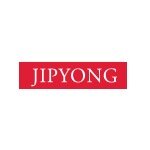Best Business Lawyers in Jung-gu
Share your needs with us, get contacted by law firms.
Free. Takes 2 min.
List of the best lawyers in Jung-gu, South Korea
About Business Law in Jung-gu, South Korea
Jung-gu, located in the heart of Seoul, is one of the major business districts in South Korea. It is home to a variety of businesses ranging from multinational corporations to small and medium enterprises. Business law in Jung-gu encompasses a wide range of legal disciplines, including corporate law, commercial transactions, employment law, intellectual property, and tax law. Given Jung-gu's prominence as a commercial hub, the district has a dynamic business environment governed by both national laws and local regulations tailored to foster enterprise growth and innovation.
Why You May Need a Lawyer
Several situations may necessitate the expertise of a business lawyer in Jung-gu. For instance, entrepreneurs starting a new business may need assistance with company formation and compliance with local laws. Established businesses might require legal representation in drafting contracts, handling disputes, or navigating mergers and acquisitions. Additionally, understanding employment law and intellectual property rights in Korea can be complex, making legal advice crucial for businesses operating in Jung-gu.
Local Laws Overview
The legal framework for businesses in Jung-gu is underpinned by both national legislation and local ordinances. Key aspects include compliance with the Commercial Act, which governs corporate formation and operation, and the Fair Trade Act, which ensures competition and regulates monopolistic practices. Labor laws protect employee rights, while intellectual property laws safeguard innovations and trademarks. Operating a business also requires adherence to tax laws, including corporate tax obligations and value-added tax (VAT) regulations specific to South Korea.
Frequently Asked Questions
What are the steps to start a business in Jung-gu?
To start a business, you must choose a business structure, register the business with the relevant authorities, obtain necessary licenses and permits, and ensure compliance with tax and labor laws.
What types of business structures are available?
Business structures in South Korea include sole proprietorships, partnerships, limited liability companies (LLCs), and corporations. Each has its own legal and tax implications.
How is intellectual property protected?
Intellectual property is protected under various laws, including patents, trademarks, copyrights, and trade secrets laws, which require registration and compliance with the Korean Intellectual Property Office.
What are common employment law issues in Jung-gu?
Common issues include employment contracts, workplace discrimination, labor standards, termination procedures, and dealing with disputes under the Labor Standards Act.
How do I resolve a business dispute?
Disputes can be resolved through negotiation, mediation, arbitration, or litigation, depending on the nature of the dispute and the agreements in place.
What taxes do businesses need to pay in Jung-gu?
Businesses must comply with corporate tax, value-added tax (VAT), and other local taxes. It is essential to understand the tax filing requirements and deadlines.
Do I need a lawyer to draft contracts?
While not mandatory, having a lawyer draft or review contracts ensures that all legal aspects are covered and that your interests are protected.
Can foreign investors start businesses in Jung-gu?
Yes, foreign investors can establish businesses in Jung-gu, subject to compliance with South Korea's Foreign Investment Promotion Act and local regulations.
How can I find a qualified business lawyer in Jung-gu?
Seek recommendations from business associations or use online legal directories to find lawyers with expertise in South Korean business law.
What are the risks of not complying with local business laws?
Non-compliance can lead to penalties, legal disputes, loss of business licenses, and reputational damage. Consulting with legal professionals helps mitigate these risks.
Additional Resources
We recommend exploring the following resources for more information and assistance: - The Korean Commercial Arbitration Board (KCAB) for dispute resolution. - The Korea Chamber of Commerce and Industry for business support. - The Seoul Metropolitan Government's Business Support Center for local insights. - The Ministry of Trade, Industry, and Energy for regulatory guidance.
Next Steps
If you need legal assistance in Jung-gu, consider contacting a local law firm specializing in business law. Prepare a list of questions and gather relevant documents before consultation to maximize the efficiency of your meeting. It may also be beneficial to attend local business seminars and workshops to expand your understanding of operating in Jung-gu and to network with other business professionals.
Lawzana helps you find the best lawyers and law firms in Jung-gu through a curated and pre-screened list of qualified legal professionals. Our platform offers rankings and detailed profiles of attorneys and law firms, allowing you to compare based on practice areas, including Business, experience, and client feedback.
Each profile includes a description of the firm's areas of practice, client reviews, team members and partners, year of establishment, spoken languages, office locations, contact information, social media presence, and any published articles or resources. Most firms on our platform speak English and are experienced in both local and international legal matters.
Get a quote from top-rated law firms in Jung-gu, South Korea — quickly, securely, and without unnecessary hassle.
Disclaimer:
The information provided on this page is for general informational purposes only and does not constitute legal advice. While we strive to ensure the accuracy and relevance of the content, legal information may change over time, and interpretations of the law can vary. You should always consult with a qualified legal professional for advice specific to your situation.
We disclaim all liability for actions taken or not taken based on the content of this page. If you believe any information is incorrect or outdated, please contact us, and we will review and update it where appropriate.
Browse business law firms by service in Jung-gu, South Korea
Jung-gu, South Korea Attorneys in related practice areas.








